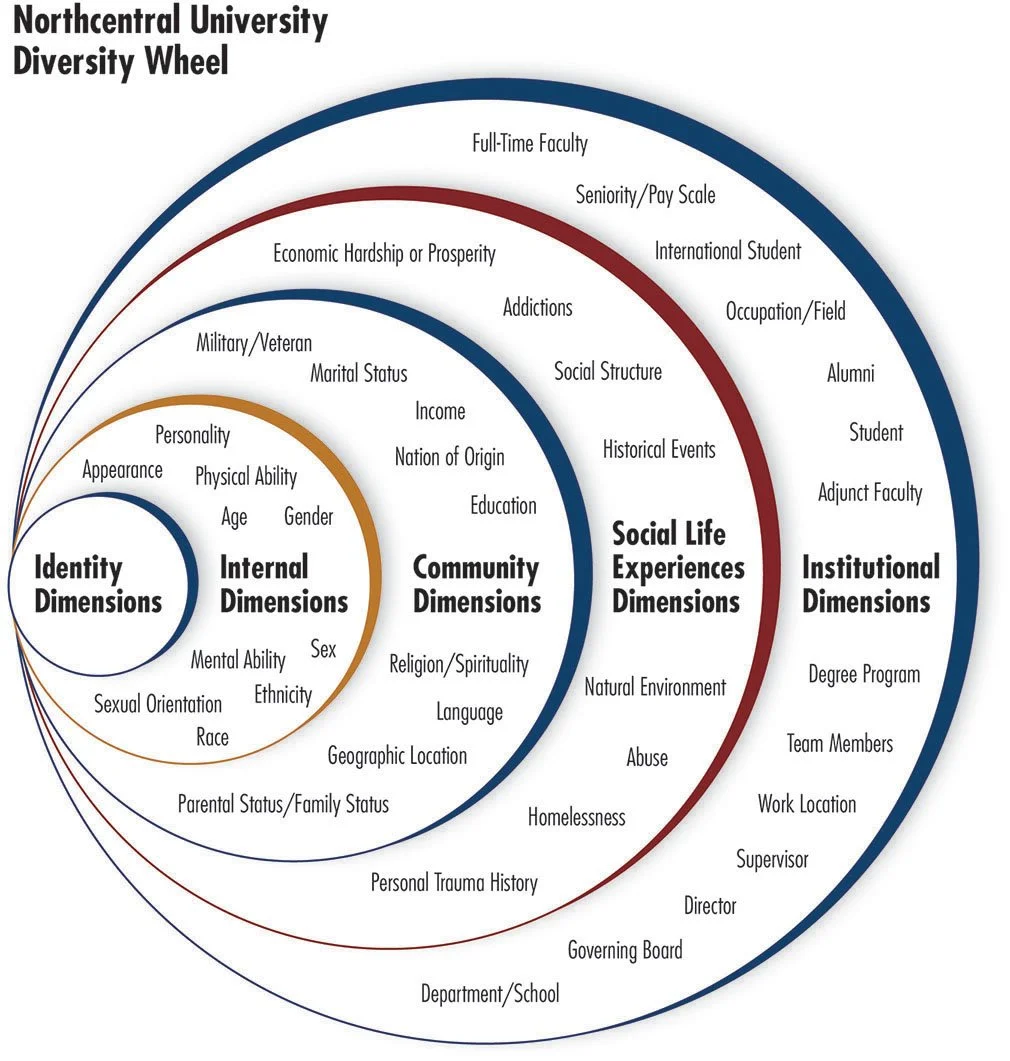Intersectionality and Mental Health
-
Per the Oxford dictionary intersectionality is “the interconnected nature of social categorizations such as race, class, and gender as they apply to a given individual or group, regarded as creating overlapping and interdependent systems of discrimination or disadvantage.”
To further elaborate, it is the crossing of multiple marginalizing identities that compound the social barriers and stigmas one may face. A person who belongs to a multitude of marginalized groups will inevitably face more discrimination than someone who belongs to a smaller number of marginalized groups. This is crucial to understand when discussing discrimination, oppression, and stigma. We cannot battle stigma and oppression if we do not understand where it stems from.
-
While we do not get to choose the vast majority of our identities, we can choose how we treat others with different identities. We cannot choose where we are born, what we look like, or what disabilities we may have. Yet, historically and currently people are discriminated against based on these very identities and many more. Being a member of multiple marginalized groups leads to the compounding of the amount of stigma and the discrimination one experiences. Whereas being a member of groups with power and privilege eases some burden of some interactions that would be much more difficult if faced by someone without power and privilege.
-
We must all acknowledge that we will never fully understand the life experiences of another individual. In the place of our inability to understand, we have a duty as another human to fill that place with empathy so that we may be able to learn about the systems of oppression through the eyes and experiences of those who are affected by them. By learning about the systems through their eyes and experiences we are better able to bring about change that is meaningful to the communities we stand with.
-
